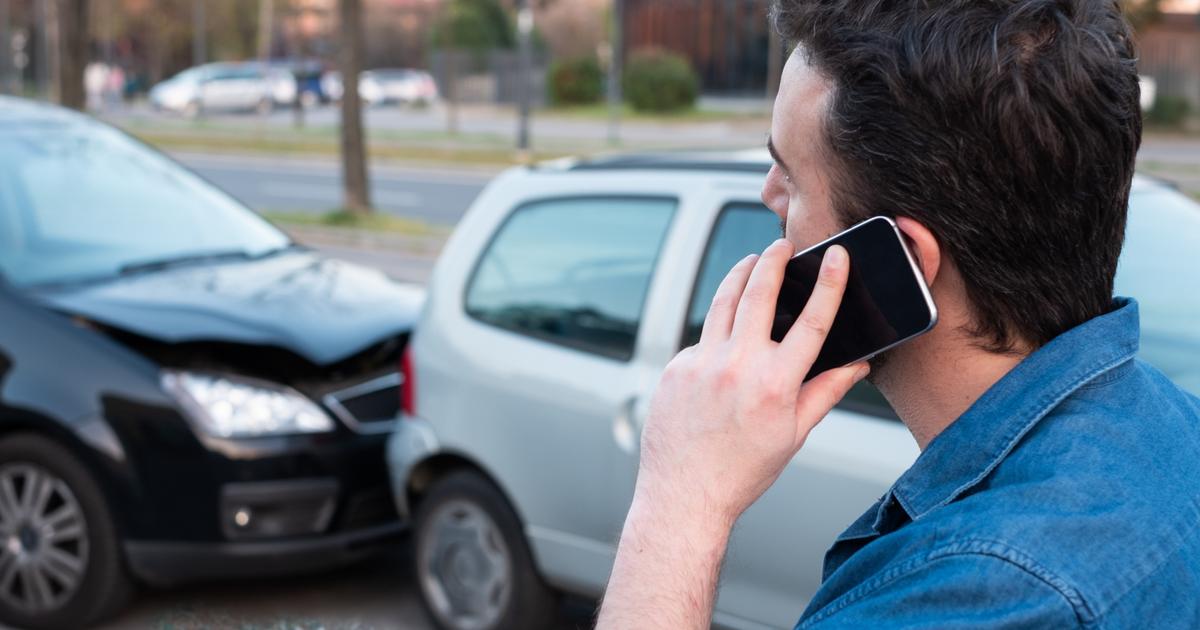Between the moment you book your future vacation and the time you leave, many unforeseen events can arise, as the Covid-19 pandemic has dramatically illustrated. And the same applies afterwards during the stay.
To discover
- Tailor-made trips: discover the offers of our partners
- Podcast Elsewhere: Singapore's hidden surprises and treasures
In order to avoid financial inconveniences that are often underestimated, even more so in times of inflation, it is therefore necessary to take the time to question the interest of taking out travel insurance or not and, in the event that you pay for your purchases with premium bank cards or other benefits, to know what type of coverage you have.
Read alsoStrike, canceled train, missed connection... How do I get a refund for my ticket?
What does travel insurance cover when I go abroad?
Unfortunately, there is no simple answer to this question because travel insurance is not as standardized a contract as car insurance, for example. There are therefore different ranges and different formulas, depending on the insurers. It will therefore be necessary to look in detail at the list of guarantees to know precisely what travel insurance covers.
However, there is a minimum base, common to most contracts, which covers repatriation and medical expenses during the trip. But even within this common base, ceilings can vary.
See alsoTravel accident: how does Social Security work abroad?
Then, come additional options or in more expensive formulas: cancellation before departure, loss / theft of luggage, interruption of stay, flight delay, civil liability and assistance. Here again, the conditions for activating these guarantees are not identical from one insurer to another. For example, some will only trigger the cancellation guarantee in the event of hospitalization, others also in the event of illness, with or without deductible...
LISTEN - Podcast: how to easily renew your passport?
How to choose travel insurance?
Many travelers think that the risk when buying a trip is limited to the cancellation fee and the cost of the stay. To choose well, you must first know what you can insure and how much: cancellation certainly, but also health costs, repatriation, loss of luggage, interruption of stay, assistance ... Most insurers today offer packages or "multi-risk insurance" that bring together all these guarantees at once and reinforce those already acquired in bank cards (read further) or complementary health.
To make a good comparison, it is important not to stop at the list of benefits but also to look at the coverage ceilings (especially if you go to a country where health costs are high) and the associated services (doctor accessible by phone 24 hours a day, local translator, etc.).
See alsoTravel abroad: nine insurances scrutinized
Which countries are recommended for supplementary travel insurance?
To date, there are no longer some countries that require health and repatriation insurance to enter their territory (including China, Mongolia, Russia, Algeria, Cuba, Burma, Laos, Vietnam, Nepal and Saudi Arabia). Travel insurance has therefore become optional again in the majority of countries around the world, after a tightening of entry conditions during the pandemic. Nevertheless, some destinations deserve special attention for two reasons: medical costs are particularly high and the maximums provided by bank card insurance are rarely sufficient.
Among the most expensive destinations in terms of healthcare costs are the United States, Japan, Canada, the United Kingdom, Switzerland, Qatar, Hong Kong and New Zealand, as well as more recently the Dominican Republic, Turkey and Australia. There are also countries with risky health specificities, such as Thailand, where scooter rental is very easy but dangerous, or popular destinations for their diving or canyoning sites, accidents being statistically more numerous. Overall, as soon as you plan a trip that goes off the beaten track, it is better to take out additional insurance.
Read alsoMental load: "I was not on vacation, I was a travel guide. I finally cracked."
What exactly does the travel insurance on my Visa or Mastercard bank card cover?
To begin with, you must have paid for your trip with your Visa or MasterCard credit card to benefit from the insurance guarantees included. Travel insurance included in "classic" bank cards is light. They do not include the all-cause cancellation guarantee and are limited to repatriation, cancellation for specific causes (illness, death of a family member, serious damage to your home or economic dismissal ...) and health costs (with ceilings and restrictive deductibles). As for luggage, it is insured only when it is on the plane, but not during the stay, and for relatively small amounts.
In any case, the guarantees supported by credit cards do not apply to trips longer than 90 days. They are sufficient for trips to Europe to major capitals without risky activities. But for more distant or more "adventure" destinations, even high-end bank cards such as Visa Premier or MasterCard Gold are limited because their guarantees for health costs, of quality almost equivalent to insurers on the market, nevertheless have lower ceilings: € 30,000 against € 100,000 in Europe, € 150,000 against € 1,000,000 in the United States. Ceilings that can quickly be exceeded.
Credit card insurance has followed the post-Covid movement of coverage coverage, but in a more limited way. The big difference is the cancellation guarantee. This is triggered for "all causes" at the main insurers (even for example if your pet is sick or in case of a sprain resulting in an inability to travel), while it remains quite restrictive on bank cards, even high-end.
"In general, bank cards, even "gold" or "first", have kept insufficient reimbursement ceilings especially for medical expenses (between € 30 and € 150,000), for the cancellation guarantee (limited to one claim per year) and even worse for the baggage guarantee which is limited to € 800. Credit card insurance has remained less reactive and will take longer to reimburse, because travel insurance is not their primary business," says Geoffroy Bonnet-Eymard (Chapka Assurances).
Covid-19: do you still need travel insurance?
Covid is no longer considered a threat, but almost all insurers have kept all insurance and assistance guarantees included in their contracts in the event of a new pandemic. Currently, travel insurance mentioning Covid is only required in rare destinations: Fiji, Galapagos, Seychelles and Israel (except for temporary residents with an A/1, A/5 or B/1 visa if insured by the employer).
However, leaving insured remains important. Because just like any disease, Covid can still ruin your holidays, before departure or during the stay. "Travelers have become aware of the importance of good cancellation insurance in case of illness before departure, and also of the significant cost of medical expenses if they had to be hospitalized at the place of their stay. Thus, we note a subscription rate to insurance that remains very high for long- and medium-haul holidaymakers," says Geoffroy Bonnet-Eymard (Chapka Assurances).
Read alsoThis is not an April Fool's joke: these harmless objects can earn you prison abroad
What kind of assistance can travel insurance offer me?
Assistance is part of the guarantees that can be included in travel insurance. This is a rather special guarantee, since it is not settled in the form of financial compensation but by global support and free services. Clearly, it avoids having to fend for yourself to manage a stressful situation during the stay, thanks to a 24-hour reactive telephone assistance.
Depending on your situation and your needs, this assistance can take different forms: repatriation home, teleconsultation with a French or French-speaking doctor, transfers to the nearest local hospital, translator to carry out administrative formalities (loss of papers, visas, etc.). It also usually includes legal assistance abroad in the event of an incident (putting in contact with a local lawyer, or even covering fees, etc.).
Attention, the assistance includes exclusions, indicated on the contract: the traveler is generally not covered in case of kidnapping, attack or act of sabotage. Intentional acts are also not supported, such as renting a scooter and riding without a helmet when required by local law.
See alsoCar accident during a trip abroad: are you covered by your insurance?
Most assistance companies are subsidiaries of insurers. There are a dozen assistance companies that do not always operate under their own name: their guarantees are included in travel insurance contracts marketed by insurers, brokers, tourist agencies, tour operators... They can also be backed by payment cards: Visa is a partner of Mondial Assistance and MasterCard of Europ Assistance.
Price of travel insurance, how much does it cost?
Again, there is no simple answer because the price can vary to a large extent depending on several criteria. The most impactful is the extent of the guarantees subscribed. If you are satisfied with repatriation and medical expenses, it will logically cost you less than if you opt for total multi-risk protection with cancellation, loss of luggage and interruption of stay insurance.
The price may also vary depending on your destination. Some insurers charge a single tariff, with an average ceiling for coverage of health costs. Others apply a surcharge for countries with high medical tariffs, such as the United States or Canada.
Finally, the duration is also a criterion that influences the price: statistically, the longer your stay, the more you run the risk of a glitch.
Based on a 15-day stay in a country with average health costs, we arrive at the following ranges:
- for repatriation insurance alone, between 10 and 100 €
- for cancellation insurance only, from 3 to 5% of the price of the trip
- for multi-risk travel insurance between 30 and 150 €
Is it necessary to take out insurance at the same time as the purchase of my trip?
For cancellation insurance, the question does not arise, because it must legally be taken out at the time of purchase of a trip (or within 48 hours) in order to be valid. On the other hand, the part of the costs of care, loss of luggage, repatriation and interruption of stay can be purchased after, or even until the day before departure.
The advantage of insuring yourself at the time of purchase of the trip is above all a form of tranquility, and allows to be sure not to forget afterwards. On the other hand, it does not leave time for reflection and / or comparison.
Do I need to take out additional travel insurance?
Often considered a "nice to have", a gadget that we can afford not to take, travel insurance, especially in its health costs part, actually covers health and social guarantees that would be difficult to take care of alone. Even in Europe, the coverage offered by the European Health Insurance Card remains limited in terms of amount. "The French are well covered by Social Security and their complementary health in France. And they often think that it will be the same abroad. However, as soon as they cross the border, the probability of spending €50,000 on medical expenses is not zero. This is true in Europe and even more so in the rest of the world," explains Quentin Poizat, Commercial Director for Leisure and Tourism at insurer Allianz Partners France.
The rates charged by American, Australian or Japanese hospitals are particularly reputed to be exorbitant. "The health crisis has increased travellers' awareness of the risks of going abroad without insurance," adds Quentin Poizat. As a reminder, only repatriation is always supported "at real costs" in the guarantees of bank cards. For all other expenses, it will be necessary to settle everything that exceeds the ceiling provided for in the contract... For example, on a hospitalization at € 40,000 in Spain, the Social Security will reimburse on its scale only € 1,250 and high-end bank cards will stop at € 30,000.
Finally, additional insurance becomes really necessary as soon as you leave for more than 90 days (limit provided by credit card contracts), for a student exchange, a long-term trip or an expatriation. Many specific contracts exist for all these long trips.
How do I use travel insurance?
Like all insurance, we hope we never need it. However, if you have to use your travel insurer, and in order not to waste too much time looking for useful information, know that you will need to have two essential elements with you: the number of the telephone platform to contact from the France or abroad, and your insurance membership number.
With these two sesames, the insurer will confirm (or not) the proper management of your problem (cancellation, accident, loss of luggage, illness ...) and will take care of opening your file. He will then send you the list of supporting documents to be provided to trigger the implementation of the guarantees, such as the medical certificate or the invoice for cancellation fees... "The entire procedure to be followed in the event of a claim is recalled when the contract is taken out. Be careful, in case of disaster, the last name will not be enough to identify you, insurers will need the membership number. Then, the claims department will take care of everything quickly, "confirms Chapka Assurances.
See also - What do we have to pick up on the beach?
This article is being updated















